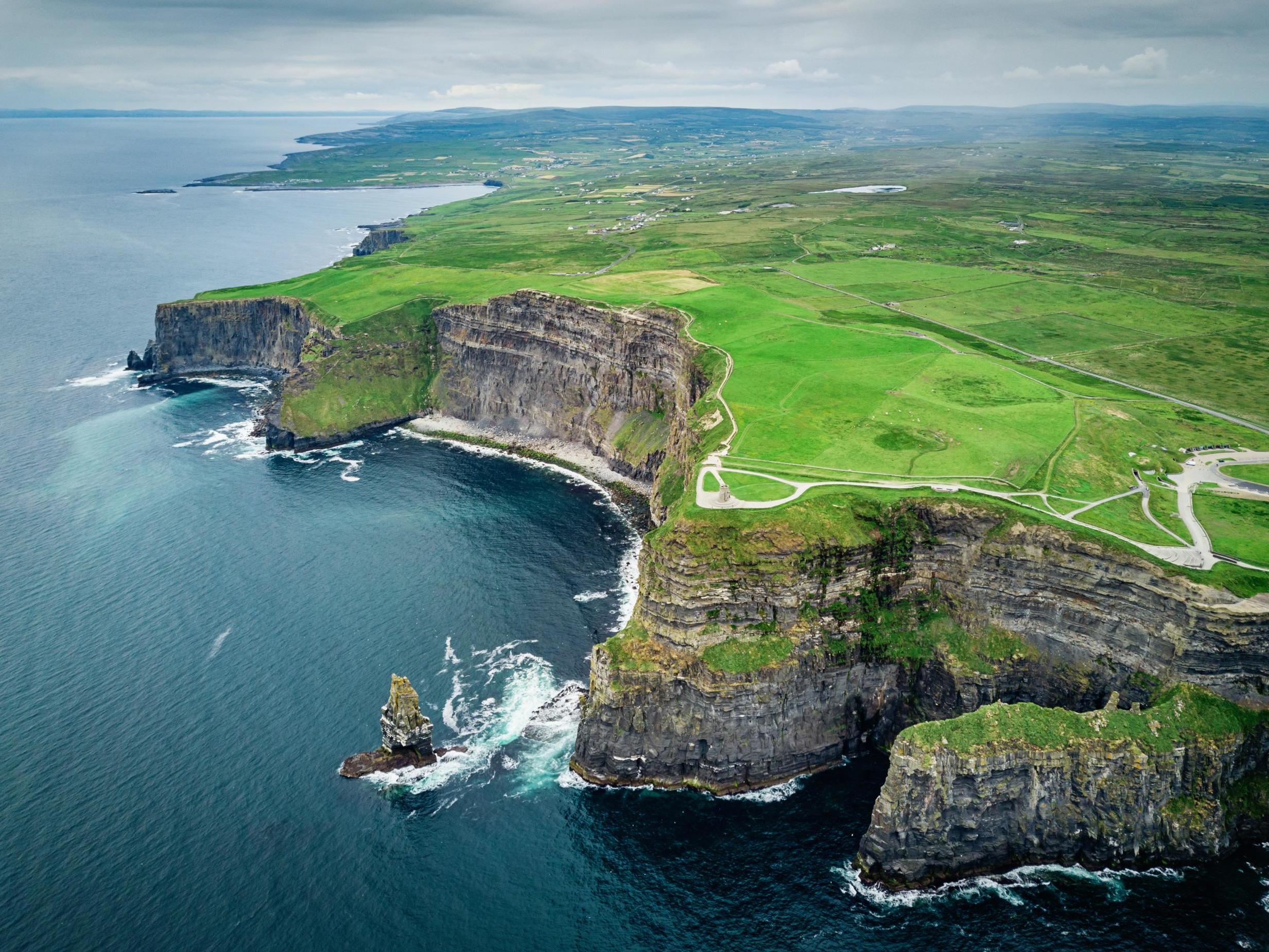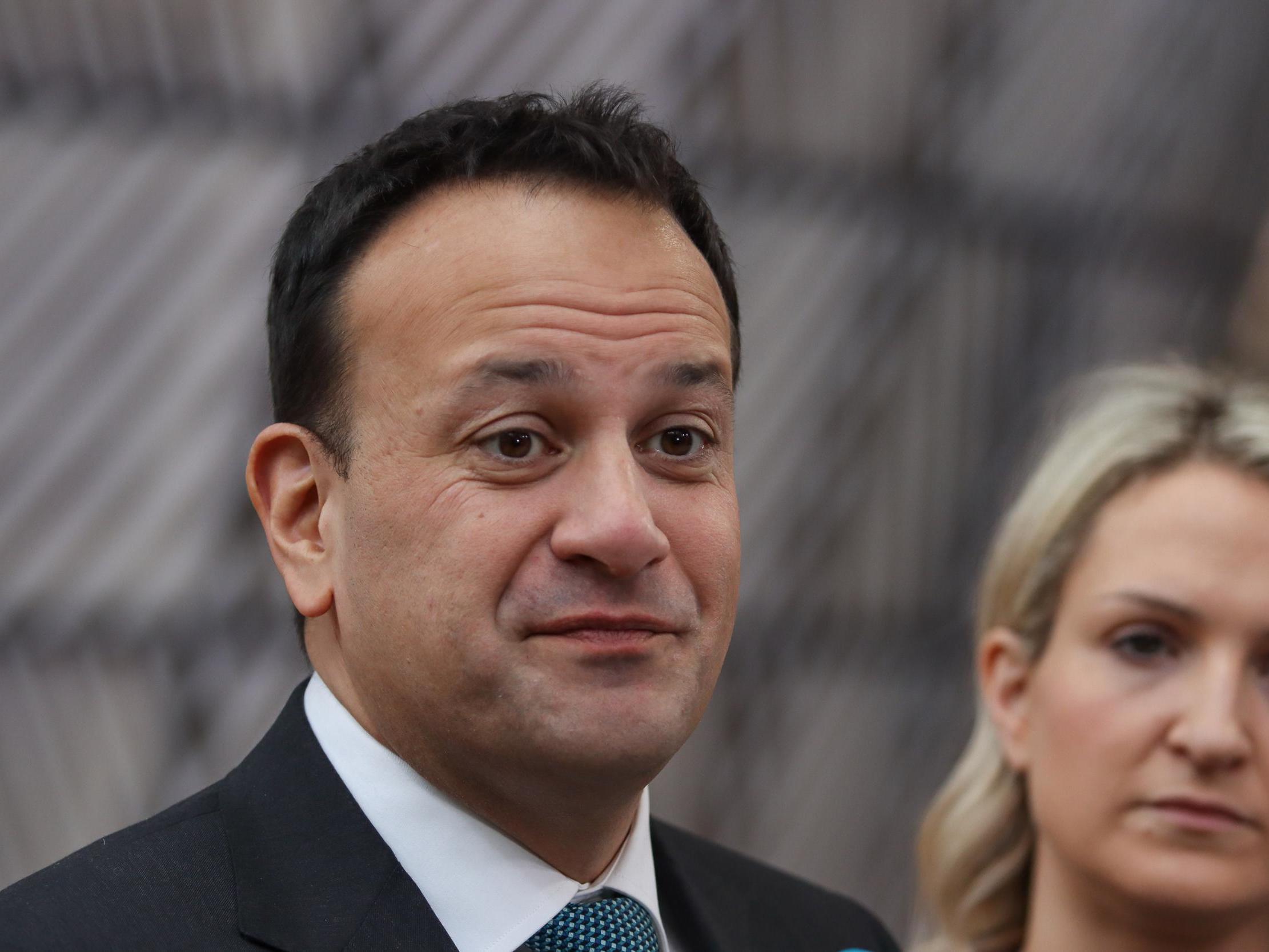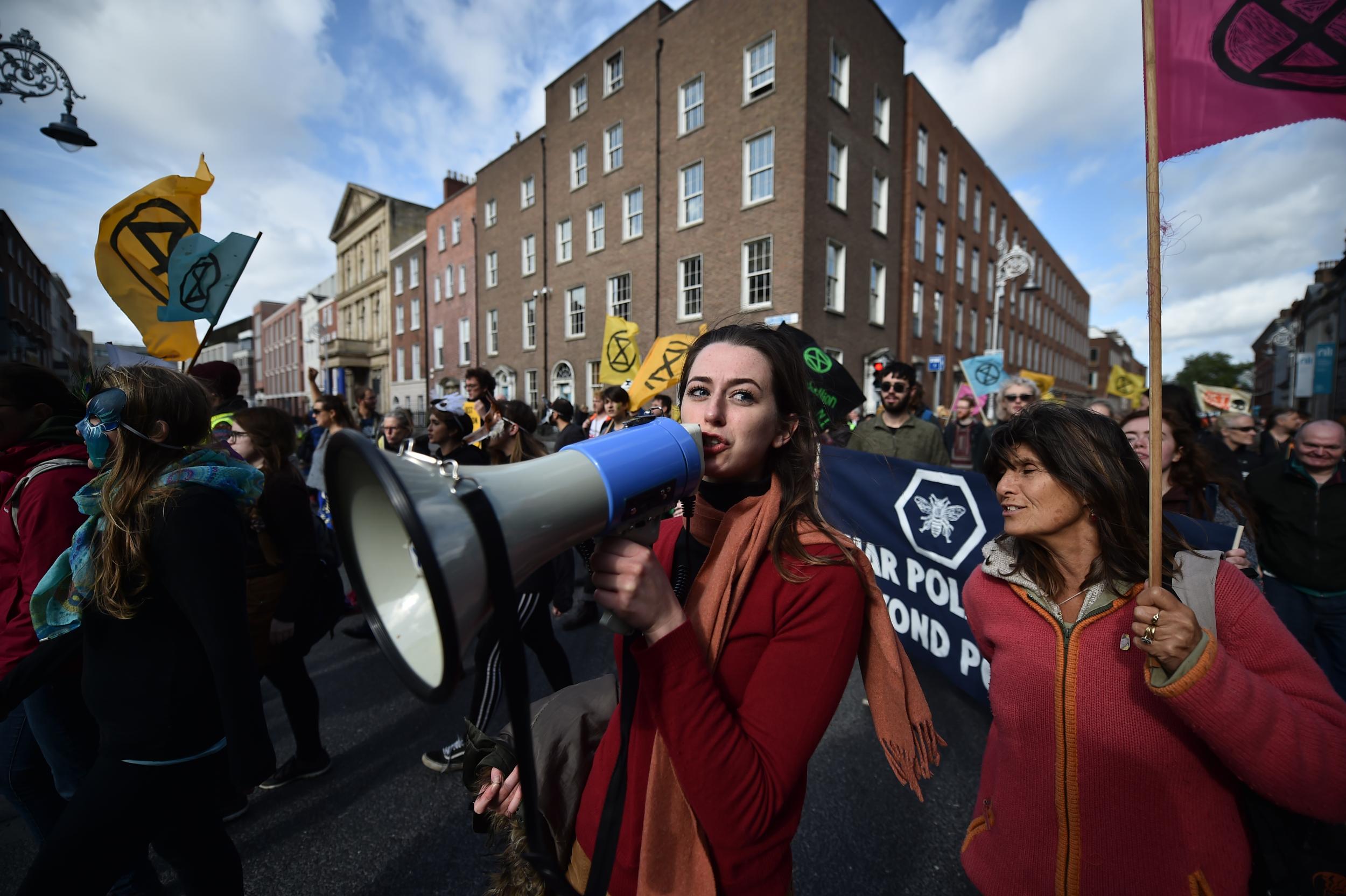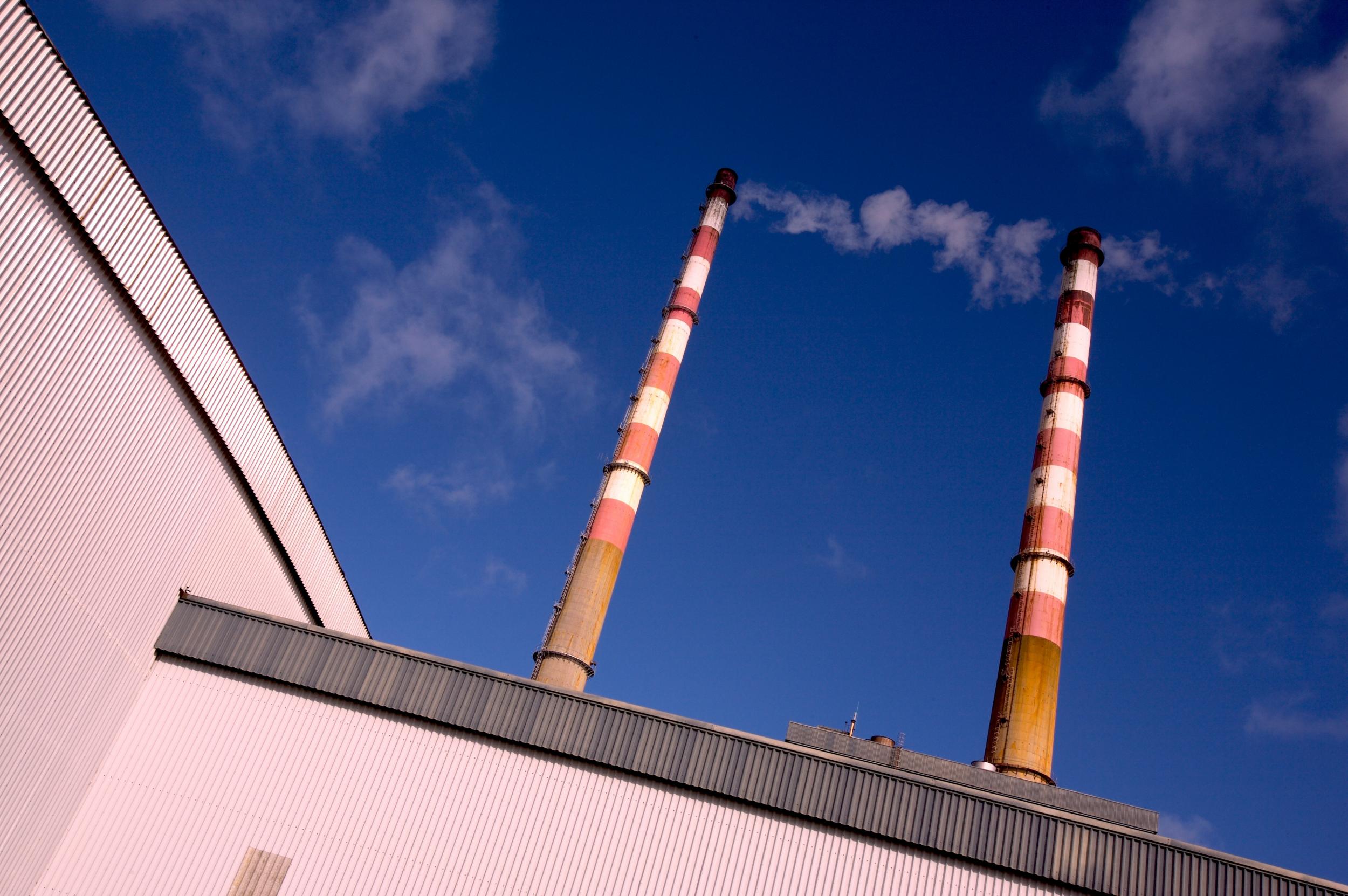In the 21st century the most patriotic thing to do with fossil fuels is keep them in the ground
Ireland has joined a small club of countries that have banned oil and gas exploration. It hopes its action will encourage other countries to follow suit, writes Adam McGibbon

In July 2019, the Irish government under prime minister Leo Varadkar fought tooth and nail to stop the passage of a law from a left-wing member of the Irish parliament. Brid Smith’s Climate Emergency Bill would have ended the issuing of licences to companies to drill oil and gas in Irish waters.
The Irish climate movement had used the government’s lack of a majority in the Dail (the lower house of parliament) to good effect in the preceding years, banning fracking and making Ireland the first country in the world to remove fossil fuel investments from its sovereign wealth fund. This time, with cross-party support in the Dail and huge support from civil society, the Climate Emergency Bill looked like it would succeed too. As Smith put it, her bill, if passed, would make Ireland a “beacon to the world, by turning off the tap for fossil fuel extraction”.
But this time, the opposition was too much for Fine Gael, Varadkar’s party. Under pressure from the oil and gas industry, Varadkar and his party used dirty tricks, and killed the bill employing an arcane parliamentary rule, unused for 50 years. Outrage flowed, with many accusing Varadkar and his ministers of hypocrisy for praising youth climate strikers while failing to take decisive climate action.
Yet, less than a year later, Varadkar agreed to form a new coalition government committed to doing exactly what Brid Smith’s bill would have done, announcing an end to new oil and gas exploration in Ireland’s vast territorial waters. How did this happen?
This is the story of how a drilling ban will keep billions of barrels of climate-wrecking oil and gas safely underground, and how Ireland will join a small but growing group of countries taking a new form of climate action by ending the handout of new licences to dig up fossil fuels.
Natural resources have always been part of Ireland’s story. Sinn Fein’s 1919 Democratic Programme, an unfulfilled revolutionary manifesto written as the Irish War of Independence raged, asserted that “the Nation’s sovereignty extends not only to all men and women of the nation, but to...the nation’s soil and all its resources”.
In the 1980s, corrupt Irish government minister Ray Burke infamously reduced the state’s ownership of offshore oil and gas finds from 50 per cent to 0 per cent, effectively giving away the state’s resources to international companies. It was once widely believed that part of the reason why the British government wanted Northern Ireland to remain part of the UK was that it gave the crown a better territorial claim for oil and gas exploration in the disputed Atlantic waters north-west of Ireland.
But now, in the 21st century, the most patriotic thing to do with oil and gas reserves is to keep them in the ground.

This is important because there is a disconnect between what the world’s biggest polluting nations say, and what they do. Almost every government on Earth claims to support the Paris Agreement, the 2015 global deal struck to limit global warming to 1.5 degrees Celsius above pre-industrial levels. Despite this, most of the Paris Agreement’s signatory governments are still digging up billions of tonnes of planet-warming fossil fuels. Research by the United Nations shows that the world is on course to dig up far more coal, oil and gas than we can safely burn and still meet climate targets. The UN calls this “the production gap” – the gap between successfully meeting climate goals, and the overabundance of fossil fuels that we are digging up.
This is the elephant in the room in global climate change policy. Governments announce grand emissions reduction targets with self-congratulatory fanfare but few of them take action to stop the continued digging up of fossil fuels, the single biggest cause of global warming. They fear the consequences of taking on the fossil fuel industry and the prospect of supporting fossil fuel workers into new jobs. So when countries put policies in place, like Ireland, to end the extraction of fossil fuels, this is a sign of hope.
When you’re talking about building a coalition of countries to get off oil and gas, you wouldn’t start with Saudi Arabia
These policies are called “restrictive supply-side” climate policies, and well-respected policymakers now say that not only are policies to restrict and end the extraction of fossil fuels very effective, they also make other policies – funding renewable energy, taxing pollution – more effective.
This is why Ireland’s oil and gas extraction ban is so important. Ireland now joins a growing club of countries that are ending fossil fuel extraction in their territory. New Zealand, Costa Rica, Belize, France and Spain have all preceded Ireland in doing this. Although these are not major fossil fuel extractors, the point is that it’s building a trend.
When you’re talking about building a coalition of countries to get off oil and gas, you wouldn’t start with Saudi Arabia,” says Greg Muttitt, an oil and gas expert formerly with environmental group Oil Change International. “You build up a coalition and gradually pull more people in. You start small and pull in ones that are progressively bigger. The power of the crowd puts more and more pressure on other countries to join.”
Muttitt gave evidence in support of Brid Smith’s Climate Emergency Bill to a Dail committee in 2018, and said that smaller nations ending fossil fuel extraction could start to increase pressure on larger fossil fuel producers. In oil-rich Norway, polls indicate more and more people in favour of curbing oil production to protect the climate. The Trudeau government in Canada is under pressure for its support of oil pipelines. California’s state government recognised last year that policies would be needed to reduce the supply of fossil fuels.

As a tiny country responsible for only 0.13 per cent of global emissions in 2017, ultimately what Ireland does to influence other countries is more important than what it does at home, and so ending fossil fuel extraction helps encourage citizens of other countries to push their governments to follow suit. This is no idle hope – when France passed its extraction ban in 2017, an MP was quoted saying they hoped the ban would be “contagious”. Four months later, New Zealand’s newly elected Prime Minister Jacinda Ardern pushed through a similar ban.
When Ireland banned fracking in 2017, it was only one of a handful of countries that had done so. Now fracking is banned across most of Europe. Fergus Green and Richard Denniss, two economists from the London School of Economics and the Australia Institute underline how important these moves are to spur global action: “The emergence of international cooperation on fossil fuels is likely to be contingent on a coalition of early-movers taking unilateral steps to limit or reduce the supply of fossil fuels.” Now Ireland will join the early-movers.
But a year ago, it looked like Ireland being an early-mover was as far away as ever. After Varadkar’s government killed the Climate Emergency Bill, Smith angrily took him to task in the Dail, accusing him of lying to 50,000 youth climate strikers. “Today is a great day for the fossil fuel industry,” she told him during a fiery debate. Over jeering and roaring from the government benches, Smith claimed that the government was in hock to the fossil fuel industry, and that no record was kept of a meeting about oil and gas drilling between the Taoiseach’s head of policy and a former government official who was acting as an fossil fuel lobbyist. The debate ended with the Speaker suspending the sitting after one of Smith’s colleagues refused to take their seat in protest.
It would have been unthinkable for governments to leave fossil fuels in the ground. Ireland’s example, and the example of the five other countries, helps lead the world
With Varadkar under pressure on climate inside the Dail and from school strikers, charities and faith groups relentlessly campaigning outside it, he had little to say that was good about Ireland’s climate record when the UN called a special Climate Action Summit a few months later in September 2019. Perhaps haunted by UN Secretary-General Antonio Guterres’ remark that he wanted leaders to turn up with “plans, not speeches”, the Taoiseach arrived in New York and unexpectedly announced that Ireland would ban the extraction of oil – but not gas – in Irish waters.
Varadkar echoed the well-worn gas industry line, swallowed as fact by so many, that gas was a "bridge fuel" that would be needed for decades to come because renewable energy wasn’t mature enough yet. This is despite mounting evidence that natural gas can be as polluting as coal, leaks deadly methane into the atmosphere and is already being undercut by cheaper renewable energy.
Banning oil extraction and not gas came across as stupid, given that all Ireland’s offshore drilling is for gas, and that oil and gas are often found together. Half a year later, by April 2020, fossil fuel giants like ExxonMobil, Equinor and CNOOC (an oil company owned by the Chinese state) had handed back a total of 16 licences to drill, unused, to the Irish government.

The final nail in the coffin for oil and gas extraction in Ireland came last month, when Varadkar formed a new government with the rival Fianna Fail party, and the Green Party. After an inconclusive election in February this year, Fine Gael’s losses meant it needed to form a coalition to continue governing.
The Greens demanded a range of measures for their participation in government, including a ban on gas as well as oil extraction. The Greens, who lean left, faced much controversy and internal debate over their participation with two right-wing parties. After much debate (and the encouragement of Incredible Hulk star and environmentalist Mark Ruffalo, who backed the government programme as it would ban the importing of gas from fracking), Green Party members voted to go into government, meaning that the implementation of a ban on oil and gas extraction in Ireland is all but certain. Ireland will be only the sixth country in the world to put in place such a ban.
In the recent past, it would have been unthinkable for governments to leave fossil fuels in the ground. Ireland’s example, and the example of the five other countries, helps lead the world. For bigger countries to follow, there must be well-thought-out plans to make sure that oil and gas workers don’t suffer in a phase-out. Muttitt’s former outfit, Oil Change International, has developed plans on how that could be done in the UK and Norway – two major fossil fuel extractors – by redirecting the billions paid in fossil fuel subsidies to re-train workers for the renewable industries of the future.
Despite this advance, Ireland is not yet a green champion. Just two years ago, Ireland was rated the worst country in the EU in a climate action performance index. Extraction will continue until the current licences expire. Despite the new government’s intention to ban imports of fracked gas and effectively cancel the planned terminals that would have imported them, there is still much to do, and the government’s plans won’t align Ireland with the Paris Agreement just yet.
But the act of calling time on the once-invincible fossil fuel industry, locking billions of barrels of oil and gas safely under the sea forever, will help pressure other countries to follow – and, as Brid Smith said, that really will be a beacon to the world.
Adam McGibbon is an Irish activist and writer. He has also written for The Guardian, The Times, The New Statesman and others.
Join our commenting forum
Join thought-provoking conversations, follow other Independent readers and see their replies
Comments